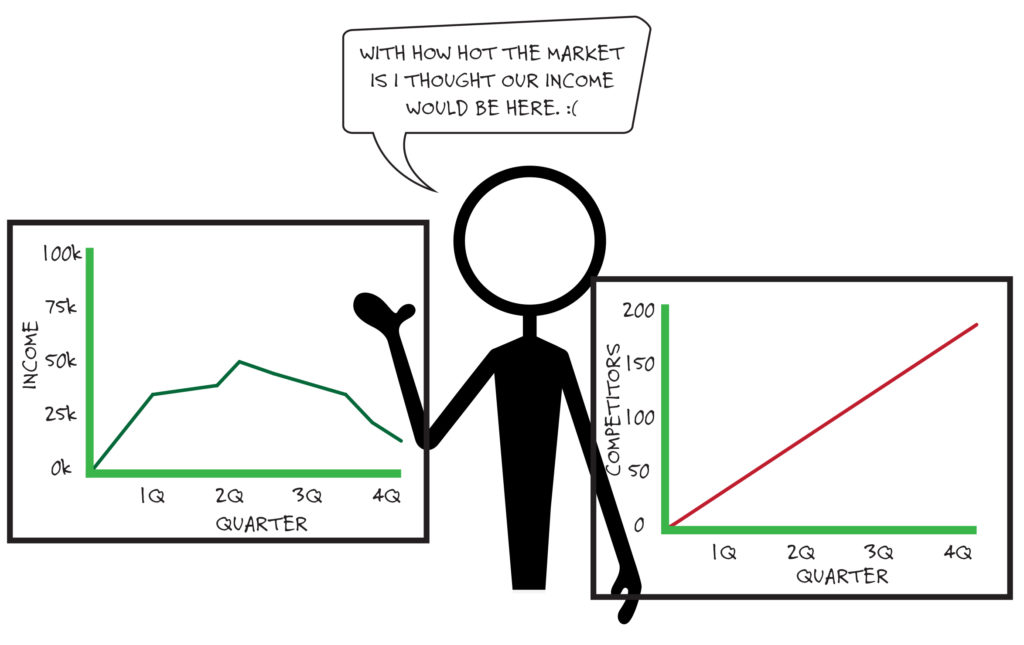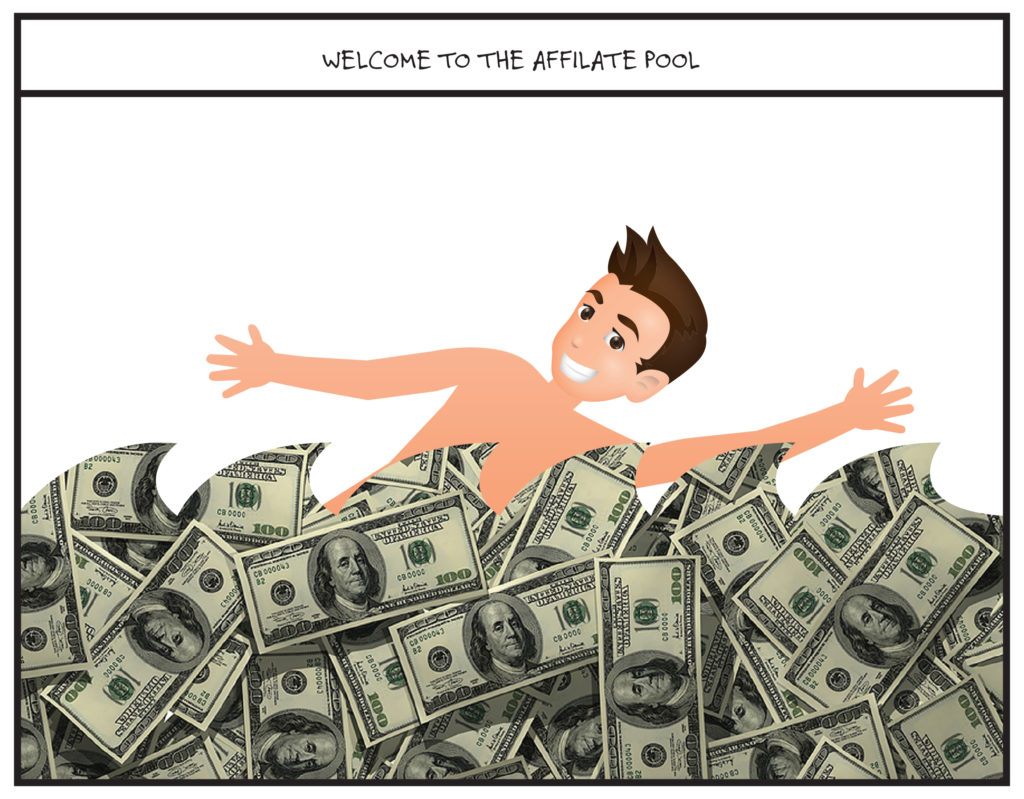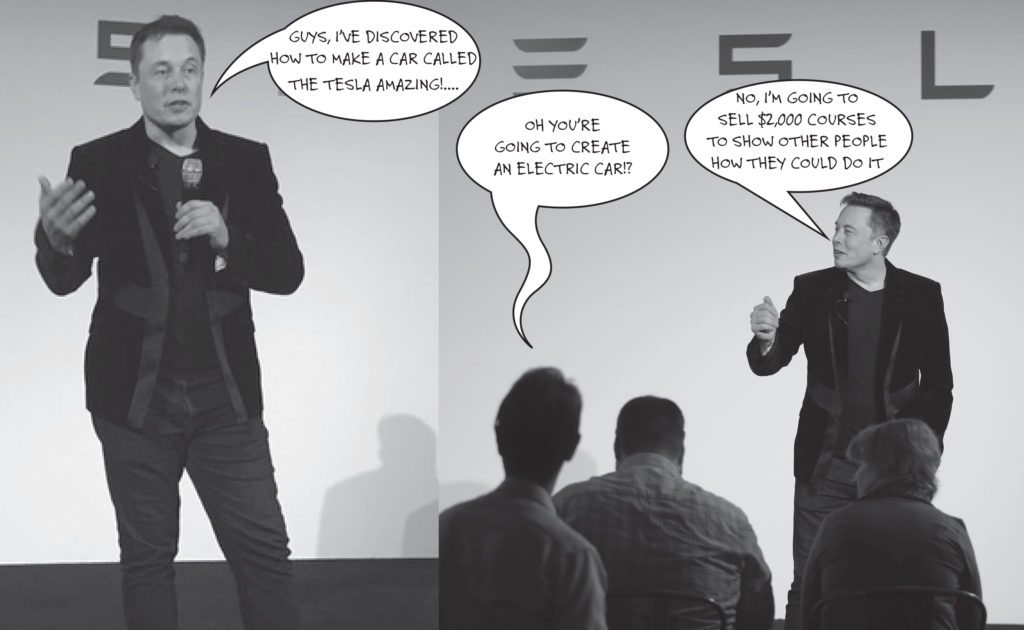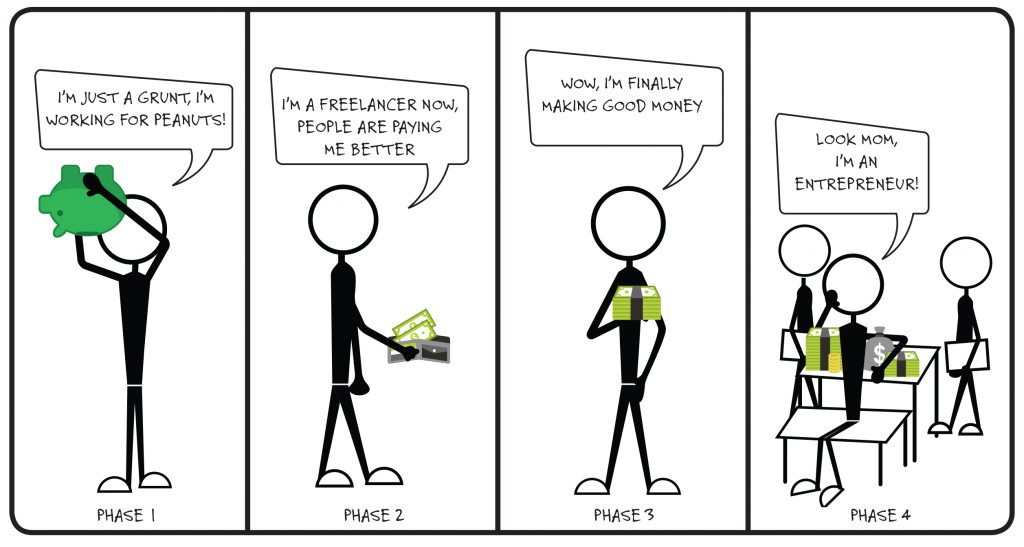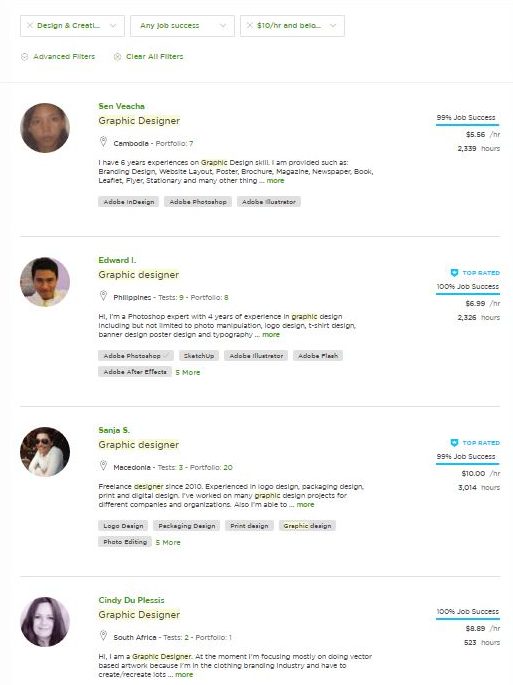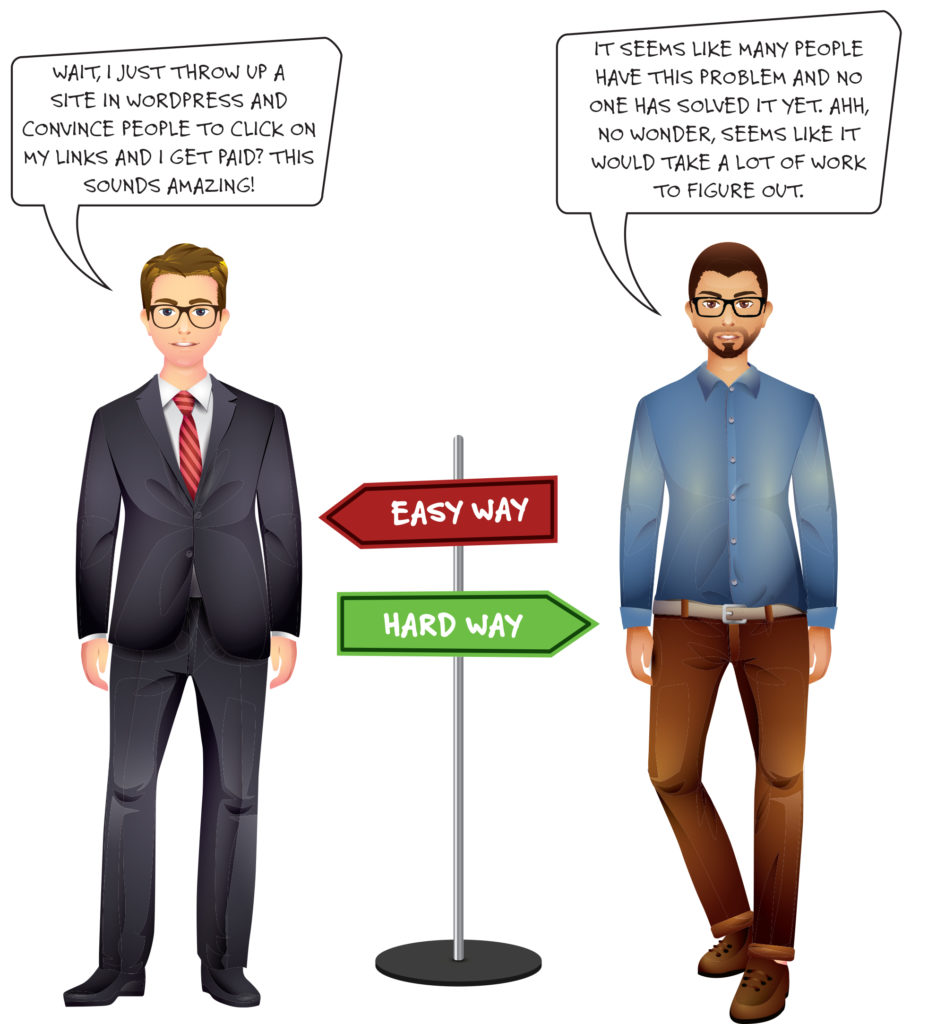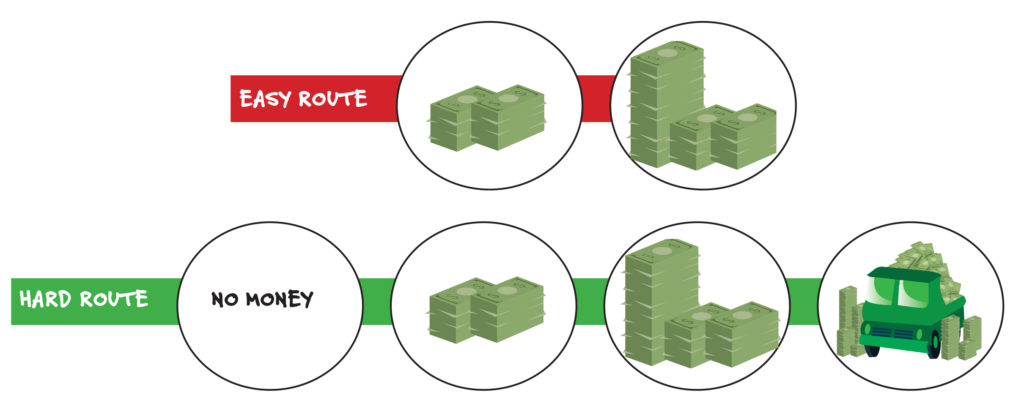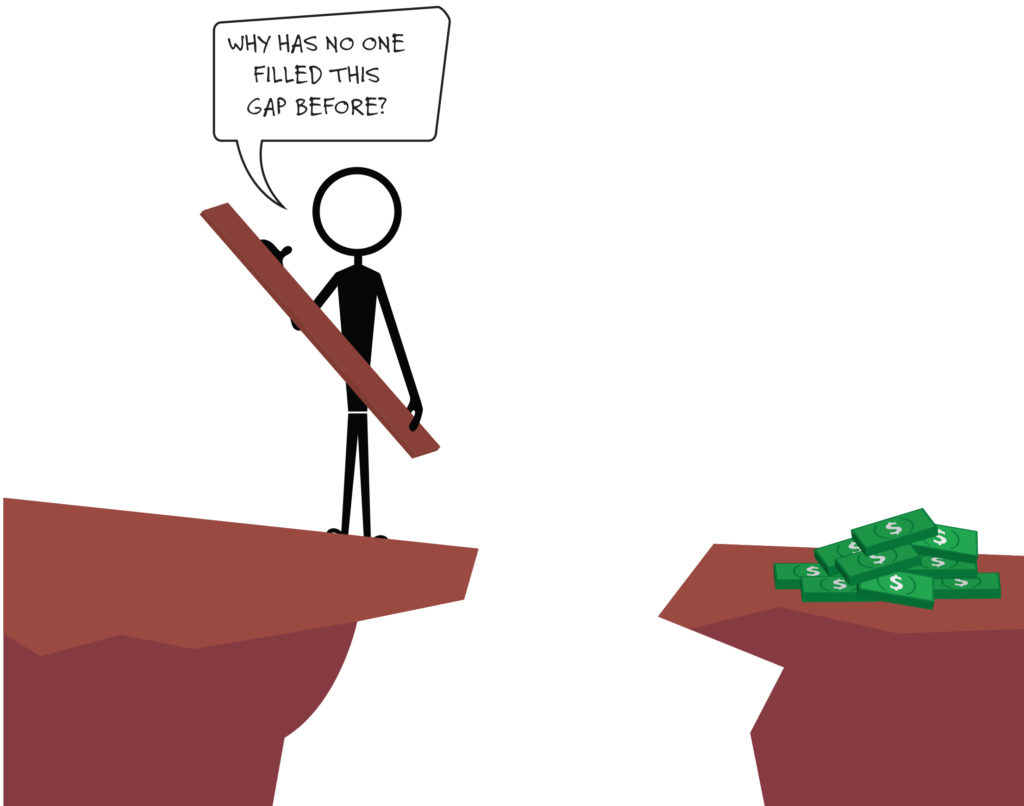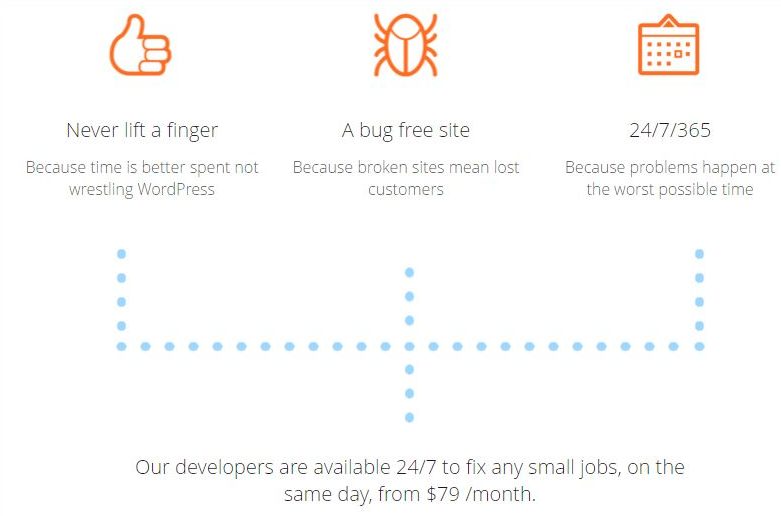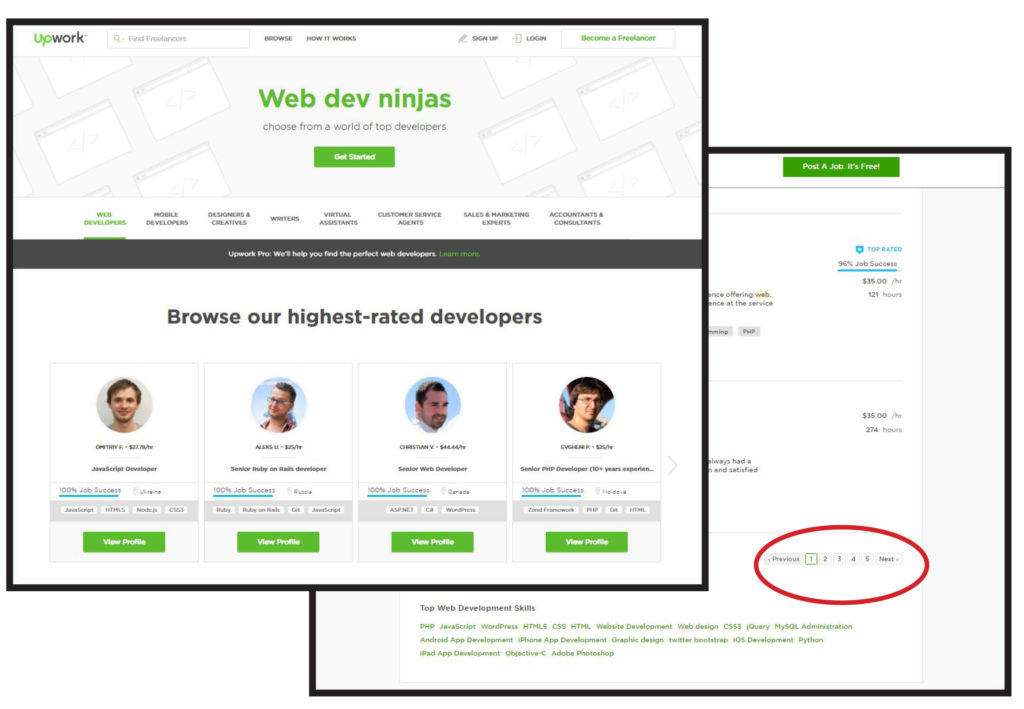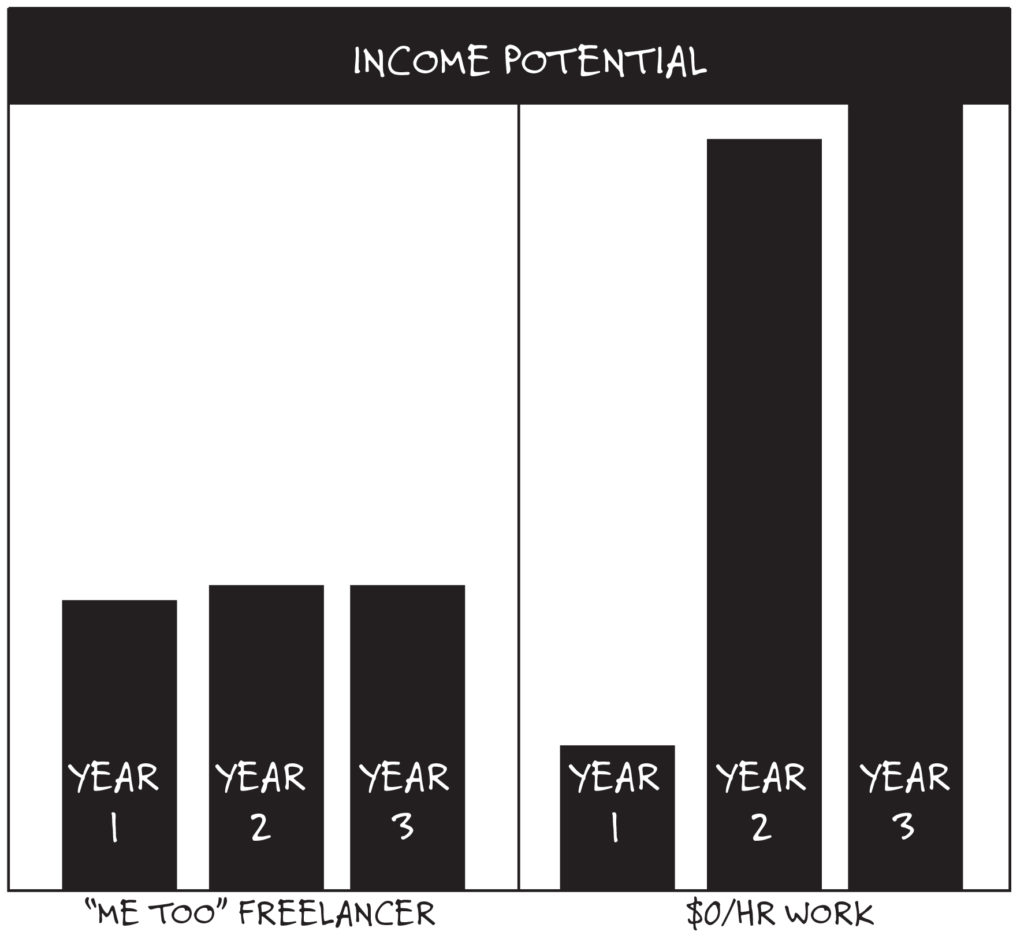I’m going to introduce you to a concept I call $0/hr work. But first, I want to remind you of something I’ve mentioned in the past to help you understand the concept better.
The game of business doesn’t have to be hard. Most people try to overcomplicate it which is where they run into issues. Here is business in a nutshell:
Step 1: find a problem someone has
Step 2: solve that problem for them
Step 3: collect money
When simplified, it’s very easy. Here’s how most people operate though:
Why does something so simple, elude so many people? Why is the guy above(like most people) oblivious to the fact that when presented with problems he’s being handed a business idea on a silver platter?
I’ll tell you why, it’s because he’s thinking in the time for money trade… “how much do I get today?”.
See, solving a problem doesn’t just pay you money. At least not right away. It’s often hard work, and takes time, and involves some thinking.
So, like most people, he sees the person’s problem as a bunch of work and not a goldmine of opportunity. Too busy to help them solve their problem!? You should be thanking them.
If I was struggling to come up with a business idea, and someone told me about a big problem they had, I’d probably just start making out with them. I’d be so excited about trying to solve their problem.
See, the beauty in someone having a problem to be solved, means it likely hasn’t been solved in a big enough way yet- meaning it either hasn’t been solved at all, or occasionally it has been solved but not marketed well enough for them to know about it. So these problems are usually significantly higher EV(expected value) than other opportunities. Instead of attempting to launch “me-too” or even ‘micro improvement’ businesses to already solved problems, solving something that hasn’t been solved optimally yet lets you fill an actual gap in the market.
Now, a logical question to ask yourself might be, “why hasn’t this been solved yet?”.
The way most people think about these opportunities is that if it was a good opportunity someone would have already solved it. That’s obviously a horrible mindset, that keeps the problem unsolved.
The rest of the people assume it’s going to be very difficult to do, and they don’t know exactly how to do it. So they don’t try either. Obviously another horrible mindset, and the problem remains unsolved.
Both of these mindsets will likely keep the people who think this way poor.
Then occasionally you have the outlier, who tries to solve the problem. That guy or girl is going to fail more often than the 99% who never attempt anything, but they’re also going to be the ones that get rich. They don’t get rich because they were chasing money. This is a false belief that most poor people have. Most people who get rich become so as a byproduct of solving problems.
Now, let’s take a look at this reason:
Many people assume it’s going to be very difficult to do, and they don’t know exactly how to do it. So they don’t try.
First, you need to understand that no one knows how to do something before they ever do it. No one. This applies from everything to you riding a bike when you were young, to Elon Musk building rocketships. It doesn’t matter how easy or hard the problem you’re trying to solve is, you don’t magically know how to do it before you research and/or try something.
So take comfort in the fact that any reasonably difficult problem you’re considering solving, is not going to be a problem that anyone else knows exactly how to solve the first time they see it. You’re going to be in the same position as them. You or the next person may have ideas on how to do it, and some of them may be right and some of them may be wrong, but you’re rarely starting out with the disadvantage you assume.
So if you realize that and it makes you feel a bit better about continuing, you may eventually find yourself discouraged by the fact that as you go about undertaking the challenge of solving this problem, you may not make the money you desire to make right away. This is disheartening to most, and it should actually give you the opposite feeling.
I know that sounds a bit strange, but let me explain.
When you have an opportunity that will take time to bring to fruition, the same feeling of disappointment that you’re having about not being able to print money out of the gate, is the same feeling your potential competitor was having, and poof, potential competitor no more because they want that quick money like everyone else. Ideas that have the opportunity to be significantly more profitable than others, often have an invisible moat around them because so few people are willing to put the time into something that might not work, or will take a while to come to fruition.
Everyone wants the easy and quick money. That’s why everyone wants to start blogs and sell coaching or launch courses or ebooks or be a freelancer or join an MLM. It’s ‘easy’, and ‘quicker money’.
It’s even easy to falsely justify your desire of wanting to get into an ‘easy/quick money’ “business” by pointing to the most successful in the ‘easy money’ niche you’re joining and saying, “see, look how much they’re making!”, as if pointing to the top .01% is a good representation of what to expect, especially when you have no idea how and why that’s happening, you just “want that too!”.
You see, the shiny lights of “easy money” businesses are often the wrong businesses to get into. They may be easy, but the rewards and expected value often line up with the ease of the opportunity. The competition of so many others wanting the easy route lowers the EV even further.
For example, it’s very easy to start a blog. There’s thousands of guys out there with blogs telling you to start blogs, and conveniently they’d like you to click their link to get started 🙂 With a click of a button you’re up and running, with the false assumption that you’ve accomplished something. The low barrier to entry means a lot of people follow that path, so not only is the ceiling of the opportunity relatively low to start out, but it’s a low ceiling with loads of competition from others who prefer the “easy” route. The easy route will lead most of them to the hard route, because they didn’t run the math before they started. They’ve likely entered an opportunity that will keep them busy, not make them successful. The opportunity to make quick/easy money is what attracts many there, but because they don’t understand what it takes to create a business that prints money, they’ll go in not understanding that they need to offer something better than what already exists in the market.
If your goal as an entrepreneur is to get into opportunities for quick and easy money, you’re often saying you’d like to get involved in low expected value activities. It doesn’t always equate that way, but it most often does. And again, because almost everyone wants the quick/easy money, it brings the EV down even further.
For example it’s easy to be a freelancer offering web design services, or copywriting, or SEO or whatever you’re a freelancer for. You can get paid quick, and the barrier to entry is low. How high do you think the EV is? It’s not. It’s low.
Ironically, I literally just got this email with this heading as I was finishing the final draft:
Marketers know what you’re looking for: fast and easy results. Make money “tomorrow!”. They’ll be glad to separate you from your money because they know you’re more enticed by that than in putting in the effort to find high EV opportunities.
Unless you’re at the top of the industry you’re in or marketing significantly better than your competition, it’s not going to pay well. If it does pay well without doing those things, it will be temporary because others would like the easy/quick money as well. Then you’re competing on price, and welcome to economics, it will even itself out where your income won’t go up like you’d like your pretty graph to look.
It will get harder and harder for the income you desire over time if you haven’t passed step 1 of creating a business that prints money.
On the flip side, there are plenty of great opportunities that are just sitting around waiting to be taken. They remain untouched because they’re hard work and/or low pay when starting out.
I mentioned an idea a while back that would take some hard work to get going, but is a legitimate idea that I would personally pay for if the service existed and was well done. An enormous amount of people who don’t have an idea to work on read the article and didn’t start it.
Why?
In short, because it would take hard work to get started, and they wouldn’t make much for a while. They didn’t have to tell me that, I can tell by the emails I received, and just based on the fact that no one did it.
If instead I told people you could make six figures starting a blog, and “click my link to get started”, how many clicks do you think I would have gotten? I’d be swimming in affiliate money.
Why? Because that would be easy for them.
If I did that the people who clicked that affiliate link would be unlikely to go on and be very successful as a blogger, at least relative to other opportunities they could have pursued.
So, why would people choose a -EV decision but pass up a +EV decision?
In short, because $0/hr work is not enticing. At least not when you voluntarily sign up for it.
“Wait, what do you mean by $0/hr work”.
$0/hr work is the work you do when you are working to solve a problem, or create a solution to a problem. You will not be paid for this work, or you will be paid such an insignificant amount of money that it’s irrelevant. However, if you’ve correctly evaluated the opportunity and it provides significant value for many people, you’ll likely be paid handsomely once successful.
The ironic thing is that most aspiring entrepreneurs unintentionally make close to $0/hr chasing the easy money because they don’t understand a good opportunity vs. a bad one.
Yet, they pass up phenomenal opportunities that would likely pay them significant amounts of money once successful.
Why do they pass them up? To avoid going down a road that would require $0/hr work.
They want “easy” and “fast money”.
Essentially, they pass up unbelievably high EV opportunities because they may not make money right away. So instead they pursue incredibly low EV opportunities because they have a chance to potentially make ‘quick’ money.
Plus, “quick money” opportunities are the ones advertised by people selling info. So people falsely assume the routes they keep seeing promoted are the good ones. High EV opportunities are not advertised because the person wouldn’t be selling info on it if it were high EV, they’d be doing it.
Could you imagine this happening?
Broke people think about how much they can make today. Rich people think about the long term expected value
If we take the example from the easy business to start, as I mentioned this is likely the process someone would go through with a business like that:
Essentially they’ll start out at that $0/hr work trying to figure out a new way to do something, and likely be a poorly paid freelancer at best until they actually figure out the optimal way to do it.
A significantly easier route to go would be doing article marketing the same way people already do it. You don’t need to solve much, you can start making money pretty much right out of the gate. But, there’s a catch. Since you don’t solve step 1, you will not create a business that prints money. You will remain a freelancer, competing on price with other freelancers that have failed to solve step 1.
Thus, you’ll find yourself in a low expected value opportunity, keeping you busy, but not getting you very far ahead in the game.
The beauty of $0/hr opportunities is a significant % of the time the reason they still exist is because everyone wants to skip the $0/hr work.
$0/hr work isn’t sexy!
Quick money is sexy.
But again the invisible moat with $0/hr work acts almost like a forcefield keeping potential competitors out because they can’t see past the $0/hr work.
Which of these opportunities has a high payday at the end of the rainbow, and which doesn’t?
$0/hr work is all the hard shit you do without making much money before you get to your payday. It doesn’t have to be $0/hr, but basically a lot of times you’re making peanuts at best. The people that try to skip this step often remain stuck where they are and wonder why that is. Maybe as you’re reading this you realize you’ve been skipping the $0/hr work that you need to do to get to the next level of the game.
I’ve had several businesses where I literally made close to $0/hr for the first many months, and then I bring in six or seven figures after the hard work starts coming to fruition and getting to the ‘print money’ stage. I can remember running the math ahead of time and wondering why no one else was attempting some of the ideas I’ve pursued. Then as I endured many $0/hr months, I understood. However, I also understood the $0/hr moat is what even allowed the opportunity to exist in the first place.
Others would have quit way before, or more likely never attempted because of all the $0/hr work.
I love $0/hr work, it keeps most of my competitors out.
You should get excited when you find $0/hr work, because it often means you’re exploring an opportunity that others have passed up because $0/hr work is not enticing.
Now, keep in mind I’m not saying pursue hard opportunities for the sake of pursuing hard opportunities, I’m saying when you discover a problem that remains unsolved, or something that could be done that would make something significantly better than what exists on the market, but hasn’t, and you find a bunch of $0/hr work, it shouldn’t be a deterrent. It should be a “hell ya” for deeper exploration, because it has likely been a deterrent to your potential competitors which might be why it’s still available.
If we look back at the article marketing idea the way I laid out in the article, here’s four likely phases you’d go through again:
- Hard, $0/hr work
- Still hard, but slightly easier/making a bit of money
- Charging more for the same work, finally getting decent pay
- So much work because you actually filled a gap in the market, you get to the printing money stage, and you’ve got yourself a real business
Now, the way most people would go about it would be to skip step 1 in the example, and go straight to doing something easier where they can start getting paid out of the gate. The problem with choosing that route is that you never get to the 4th step. The ceiling is capped below that because you’re not filling a gap in the market, you’re just offering a service that already exists.
If you attempt to fill a gap in the market, it may often require $0/hr work to figure out how to do that, but it is what allows the print money phase to exist. There is often a large payday if you solve it.
This is why most people end up in situations where they don’t make as much money as they desire, and they wonder why. They pursue opportunities for how much they can make today, instead of asking themselves if the potential income of the opportunity they’re pursuing matches up with their goals.
Any entrepreneur that’s reading this who’s started a real business before is thinking, “ahh ya obviously you may have to work without making money when you’re starting a business.” But it’s become more and more popular to chase quick money instead of real opportunities because of the fact that most of the people teaching how to make money are doing so with the intention to make money, and info marketers are being replicated at a significantly faster rate than real entrepreneurs who take time to share their lessons. So the real information is getting drowned out by what sounds most appealing, and then regurgitated so that everyone falsely assumes you should be able to throw up (insert info product of the day) and instantly make a bunch of money.
At the risk of overdoing it, let me show you another example of a business that could have just gone the easy route, but instead spent time doing $0/hr work solving a problem(and probably not much since they successfully solved it) and offering a service that was better than what existed in the market.
Now, that’s a pretty enticing offer.
How the hell do they even do that? Well, from talking with Dan about it, a lot of freaking work! And taking time to set up the systems that allowed it to happen.
It would have been significantly easier to just start a freelancer “business” offering fixes to your website like everyone else.
“Easy”, and “quick”, but would have had a very limited ceiling because of the fact that everyone else would have offered a similar service.
To create an offering that doesn’t exist in order to offer more value than what currently exists in the market…that’s hard work. But guess what, that checks off step 1 in how to create a business that prints money. Now, just because you check the first box off doesn’t mean it’s an instant windfall, but it’s no surprise that their business is already doing seven figures/yr.
Starting a “me too” or ‘micro improvement’ business would have capped them to a very small ceiling.
Getting through the “$0/hr work” that they went through gave them a bit of a moat in the space, despite many copy cats coming onto the scene after they learned that there was money to be made there.
That’s kind of the funny thing with the way people’s minds work. They wait for other people to prove that something can make money before they’ll try it, and they don’t stop to realize the fact that once someone else has already proven that it works, they’ve often filled that gap. So, copying the same offering as they just filled puts you in the situation we’ve discussed, where you’re now attempting to launch a “me too” business, or ‘micro improvement’ at best. Thus, your ceiling is capped. The person who goes through the $0/hr work to attempt to solve a problem/pursue an opportunity before it’s been solved is the person that gets the payday.
Are there exceptions? Of course, people who come in and solve the problem in a better way than the initial person, or execute/scale faster, but I don’t want to get too deep to confuse the point.
In short, the point I’m trying to make is the most optimal opportunities are not going to be the ones you already hear of everyone doing. The ceiling is already capped.
The highest EV activities are not going to be you instantly walking into easy money. That’s not how it works. You’ll often have to do a bunch of $0/hr work if you’re passing up the easy money routes, but when successful you’ll also receive a payday that likely didn’t exist if you had gone down the other route.
If you come across an idea that’s protected by a $0/hr moat, that’s not the time to look for easy money, it’s the time to recognize you just might have something.




